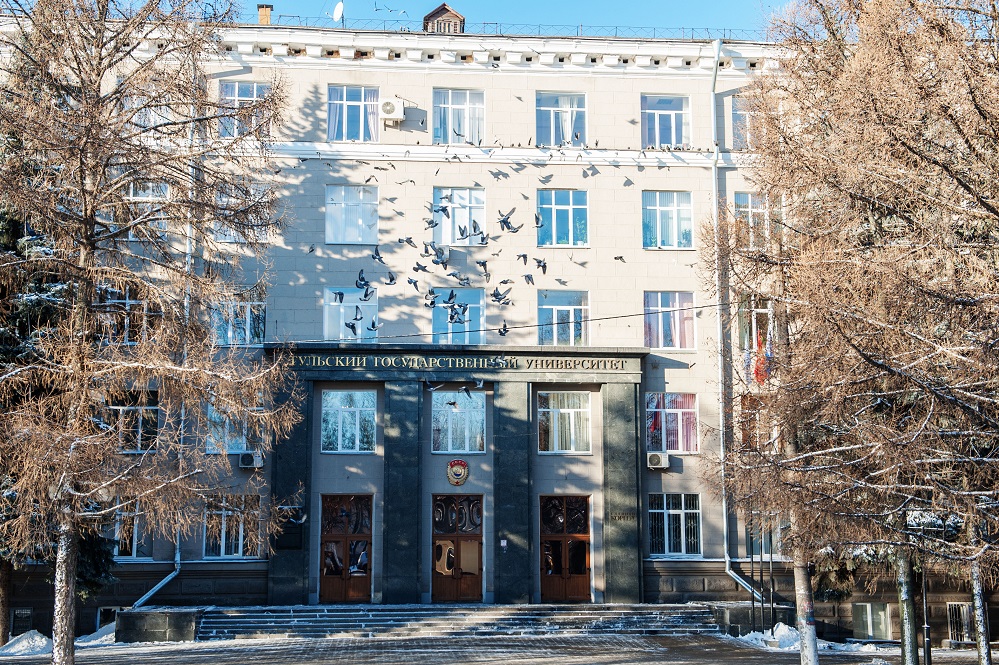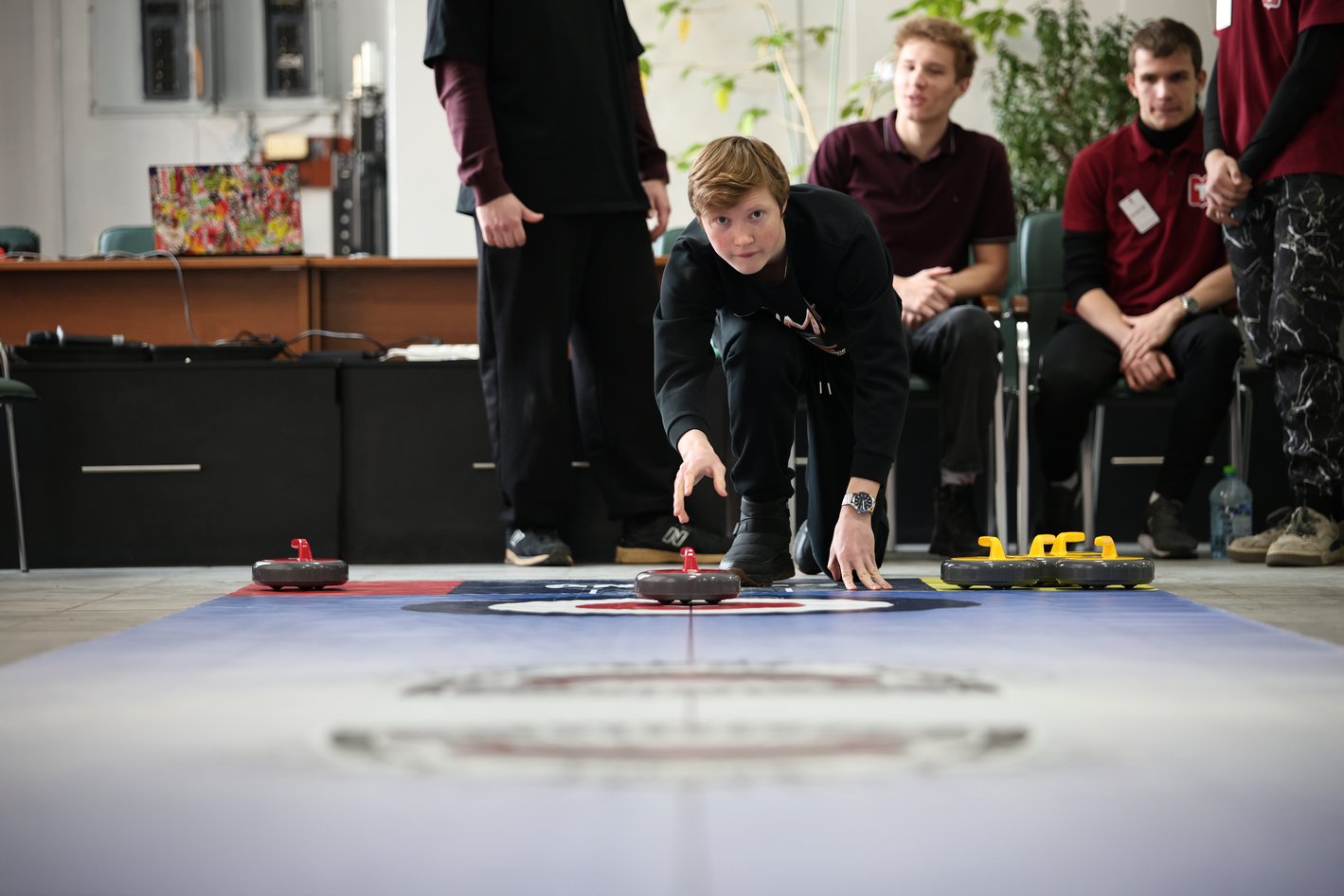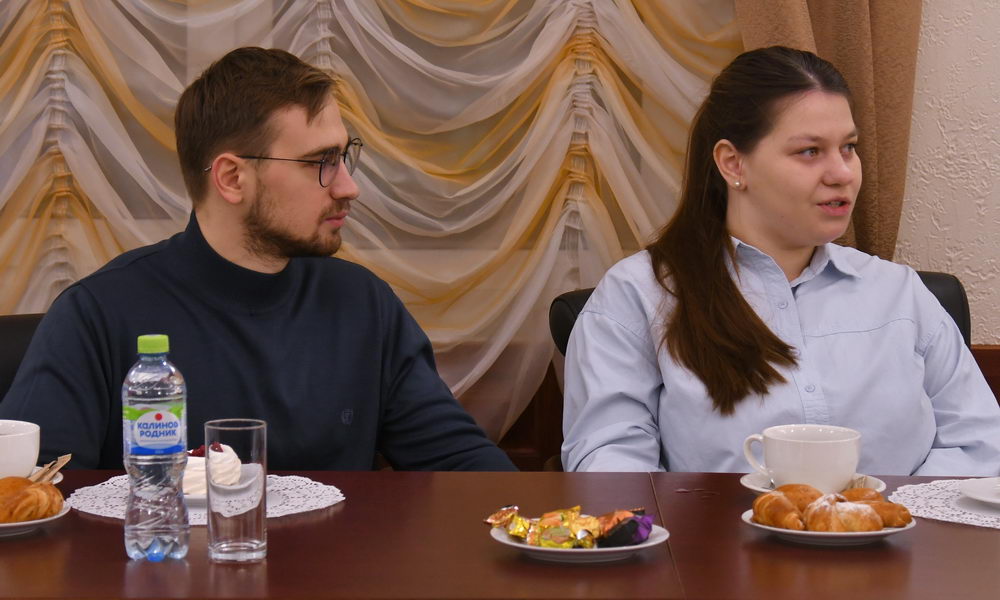- 23.12.2024
“Golden Key” opens the way to the future through language and culture
The All-China Contest of Russian Language and Culture “Golden Key” was held within the framework of the Years of Culture between Russia and China. More than 3000 people from all over the country took part in it. They were divided into two age categories: juniors (15-17 years old) and adults (18-26 years old).
The contestants demonstrated their knowledge of Russian culture, made thematic presentations, performed creative items, sang songs in Russian and took part in improvised miniatures.
Following the results of the qualifying stages, 18 people from each group reached the finals.
The winners were 5 contestants from each age group. They were given the opportunity to visit Russia and take part in cultural events.
- This year a foresight session “Russian Language and Culture in the Era of Russian-Chinese Strategic Cooperation (to the 225th Anniversary of Alexander Pushkin)” within the VIII Congress of the Russian Society of Teachers of Russian Language and Literature “Dynamics of Language and Cultural Processes in Modern Russia” was held in September in Krasnoyarsk, - Olga Dmitriyevna Gladkova, Candidate of Pedagogical Sciences, Director of the Institute of International Education, informed. - Tatyana Urzhumtseva, Director of the Russian Cultural Centre in Beijing, spoke in the videoconference mode. She informed us that the Centre is looking for a partner from among Russian universities to hold the All-China Contest of Russian Language and Culture “Golden Key”. And we, of course, immediately got involved in this work. The Department of General Theoretical Disciplines and Russian as a Foreign Language made a huge contribution.
The competition consisted of two stages. The first, absentee, involved the preparation and recording of a greeting and a creative item.
- During the creative works, the participants showed a good knowledge of Russian language and Russian poetry, filmography, and pop music, said Irina Marselyevna Lagun, Doctor of Technical Sciences, Head of the Department. - The vast majority of works were characterised by good phonetics of the contestants, their sincere interest and desire to learn more about Russian culture, high technical level of performance.
Teachers of the Department of General Theoretical Disciplines and Russian as a Foreign Language checked more than 380 works of the contestants, evaluating each of them according to 3-4 criteria. They admitted that it was very difficult to select the participants of the final stage.
The second and final stage included answering questions in several nominations, such as “History”, “Geography”, “Russian language”, “Cultural traditions” and “Questions from ...”.
In the process of preparing the final part of the competition, TulSU teachers compiled more than 70 tasks in the sections “Russian Language/Phraseology” and “Cultural Traditions”. As for phraseology itself, the experts of the department separately singled out questions on the correspondence of Chinese and Russian proverbs and sayings, showing both the same approach to the events of everyday life and the difference of mentality of our peoples. Based on the results of this work, a scientific article was written, which has already been published and placed in the RISQ of the NEL RF.
- When preparing tasks on knowledge or familiarisation with the cultural traditions of Russia, we tried to present the Tula component in the general picture of the customs of the peoples of our country,’ Irina Marselyevna emphasised. - Gingerbreads, samovars, as well as the traditions of craftsmanship, production and training of the Tula region were not forgotten.
The awarding ceremony of the winners of the All-China Contest of Russian Language and Culture “Golden Key” was held on 13 December at the Russian Cultural Centre in Beijing.
It was attended by Igor Aleksandrovich Pozdnyakov, representative of the Russian Ministry of Science and Higher Education in China, Zhang Bin, Secretary General of the Chinese Association of Teachers of Russian Language and Literature, and Tatyana Borisovna Urzhumtseva, Director of the Russian Cultural Centre in Beijing.
The latter, in particular, noted the symbolic meaning of the name of the contest “Golden Key”, which means the aspiration of the participants to open the way to the future through language and culture.
- We were pleasantly surprised by the high level of preparation of the participants. Their performances were a real gift for us,’ Tatyana Borisovna admitted.
In recent years, she added, Russian cultural events such as dramatic performances, operas, ballets, symphony concerts, art exhibitions and fashion shows have increasingly been held in China and have attracted great interest. Russian culture is vividly represented on the Chinese stage. At the same time, the Russian audience is looking forward to the performances of Chinese artists.
The Rossotrudnichestvo Representative Office in the People's Republic of China and the Russian Cultural Centre in Beijing expressed their deep gratitude to Tula State University represented by its Rector Oleg Aleksandrovich Kravchenko for invaluable help and support in organising the All-China Contest of Russian Language and Culture “Golden Key”, as well as for assistance in evaluating the candidates' works and preparing questions for the final stage of the contest.
“Your contribution to the organisation of the event”, the letter says, “was the key to its success. Thanks to the high professionalism of the teaching staff, it was possible to create an atmosphere in which each participant of the competition was able not only to express himself creatively and show his erudition, but also to be inspired to new achievements and deep reflections on the richness of the Russian language and culture. We are deeply grateful for the willingness to help and be part of this important event. Thanks to the staff of Tula State University, we have been able to showcase the richness and diversity of the Russian language and culture. We sincerely appreciate your support and look forward to continuing our fruitful co-operation in the future”.
Well, we congratulate the staff of the Department of General Theoretical Disciplines and Russian as a Foreign Language at the Institute of International Education and wish our colleagues new professional success!
Tatyana Krikunkova








